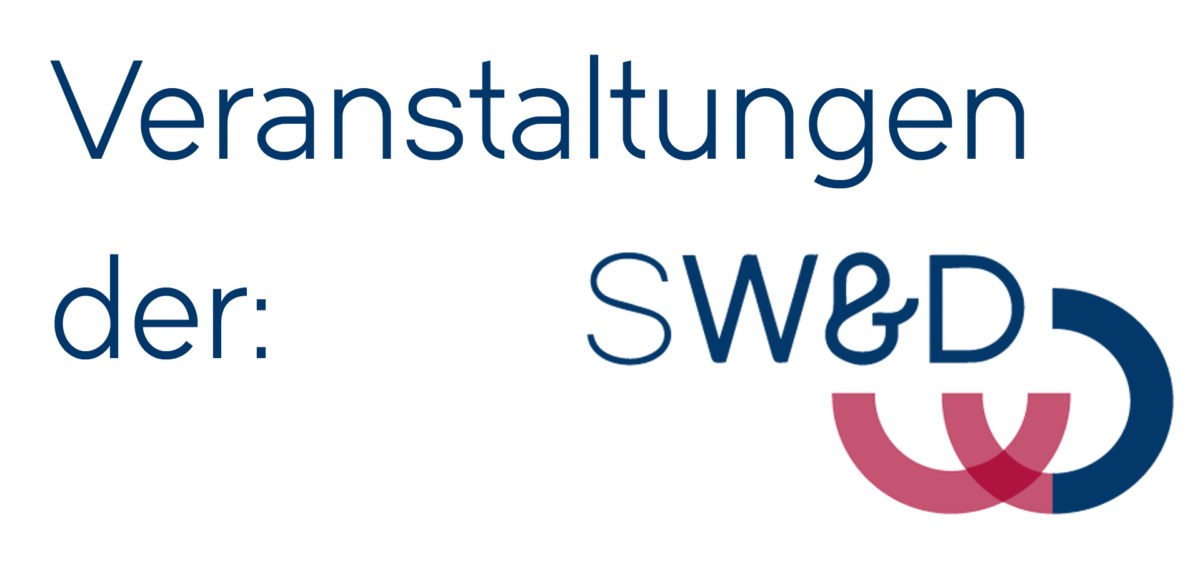Report on the lecture by Alexander Wierzock
How up-to-date can a thinker from yesterday be?
What does a North Frisian scholar from the 19th century have to say to today's society - a society that is confronted with fake news, political polarisation and dwindling trust in science? Quite a lot, as the event "170 years of Ferdinand Tönnies" on 22 July 2025 at the Science and Democracy Foundation. The event was moderated by Julia Jamila Werner.
Between historical insights and current debates, it became clear that Tönnies was not only a pioneer of sociology, but also a political visionary. His thoughts on the role of science in politics, empirical social research and the reform of political science seem astonishingly modern - and that is precisely why it is worth taking a second look at his work.
Between scholarship and social criticism
Ferdinand Tönnies was many things: philosopher, sociologist, politically committed citizen - and a thinker who was reluctant to be categorised. In his lecture, the historian Alexander Wierzock from the Institute for Advanced Study in the Humanities in Essen (KWI) presents a multifaceted portrait of a man who, even during the German Empire, was convinced that science was more than just theory: it was a tool for understanding society - and shaping it.
With his famous distinction between "Community" and "Society" Tönnies not only created a classic of sociology, but also an interpretative framework that continues to provoke debate to this day. But it didn't stop at theory: Tönnies was involved in several democratic parties of his time - from the Free People's Party to the Social Democratic Party - and consistently thought about how politics could be scientifically founded.
One thing was particularly important to him: the Independence of political science. At a time when this was still firmly anchored in the canon of political science, Tönnies boldly called for its differentiation - embedded in a new understanding of cultural and social science. He argued for a science that not only analyses, but also provides orientation.
Sociography - the underestimated sister of sociology
A special focus of the event was on a lesser-known, but no less exciting part of his work: the Sociography. For Tönnies, sociography was not a by-product of sociology, but its "equal sister" - an empirical discipline that visualises concrete social realities. While sociology formulates theories, sociography should provide data, describe conditions and record developments.
This approach raises questions that also preoccupy today's social sciences: How much proximity does science need to reality? How objectively can we observe societies - and how much do we need to engage with what people actually experience?
Science as a political project
Perhaps most impressive was Tönnies' idea of a "scientific policy": an idea that seems almost utopian today - and yet is highly topical. Politics, he believes, should not be guided by opinions, but by knowledge. Laws should not emerge from a gut feeling, but from a rational analysis of social needs. In his words: the statesman should "recognise with the same certainty and certainty as the doctor what is necessary, what is right and what is beneficial".
This vision provided material for a lively discussion. Can a democratic society really be governed on a scientific basis? Where are the opportunities and risks of such an idea - especially in times of political fragmentation and growing scientific scepticism?
A look back - with a future
The event "170 Years of Ferdinand Tönnies" was more than just an academic tribute. It was living proof of how fruitful a dialogue with a seemingly historical thinker can be today. Tönnies' work was not presented as a museum, but as an intellectual tool for thinking through the present.
The participants discussed controversially and with palpable curiosity: about the role of empirical research in political decision-making processes, about the responsibility of science in a changing society, about the question of what it actually means to act "reasonably" today and about the areas of tension that also characterised Tönnies' thinking.
In the end, the impression remains that Ferdinand Tönnies is still an elementary component in debates about democracy, social research and the power of knowledge. His call for science-based politics is perhaps more urgent today than ever before.
Impressions from the lecture
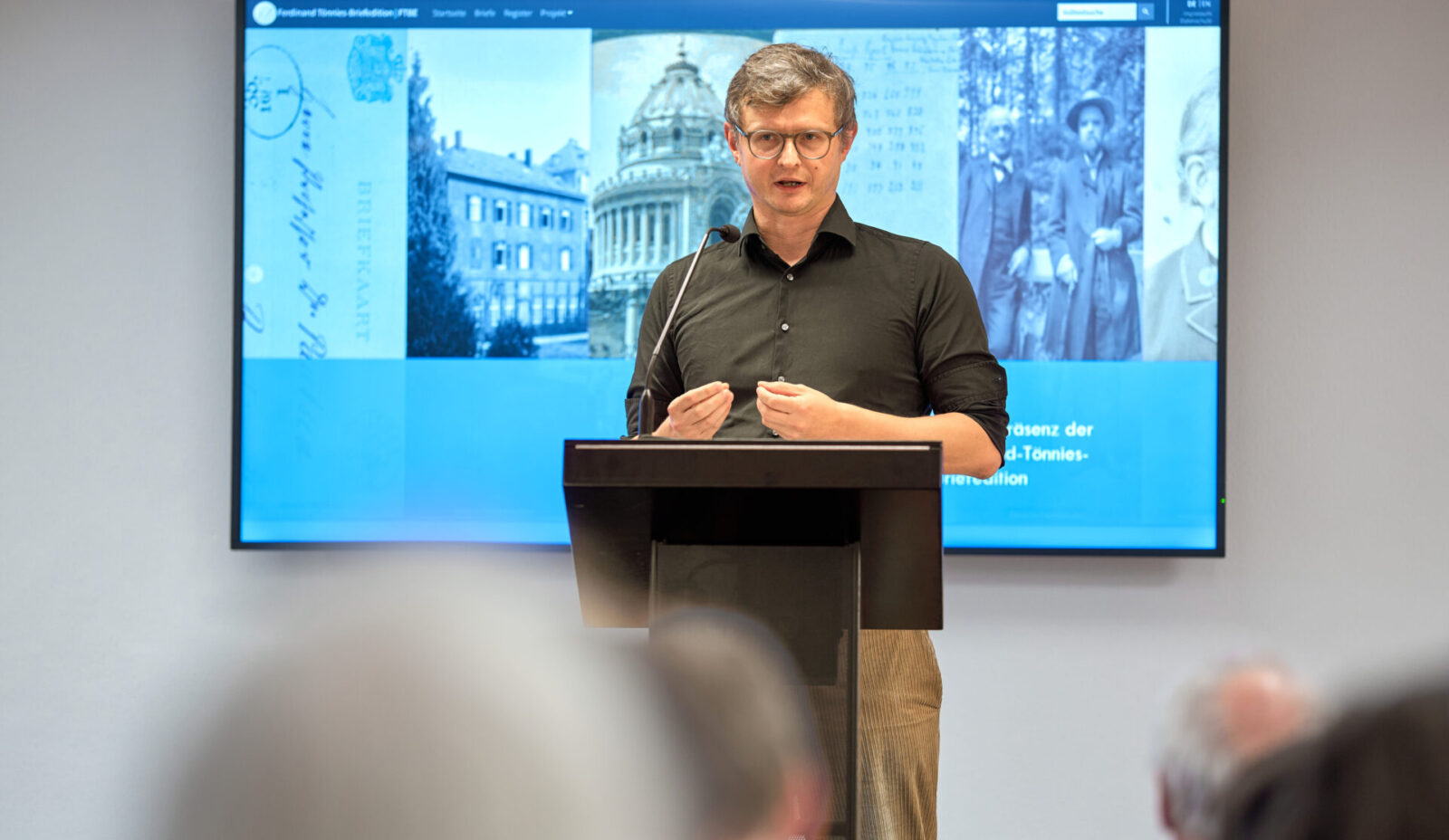

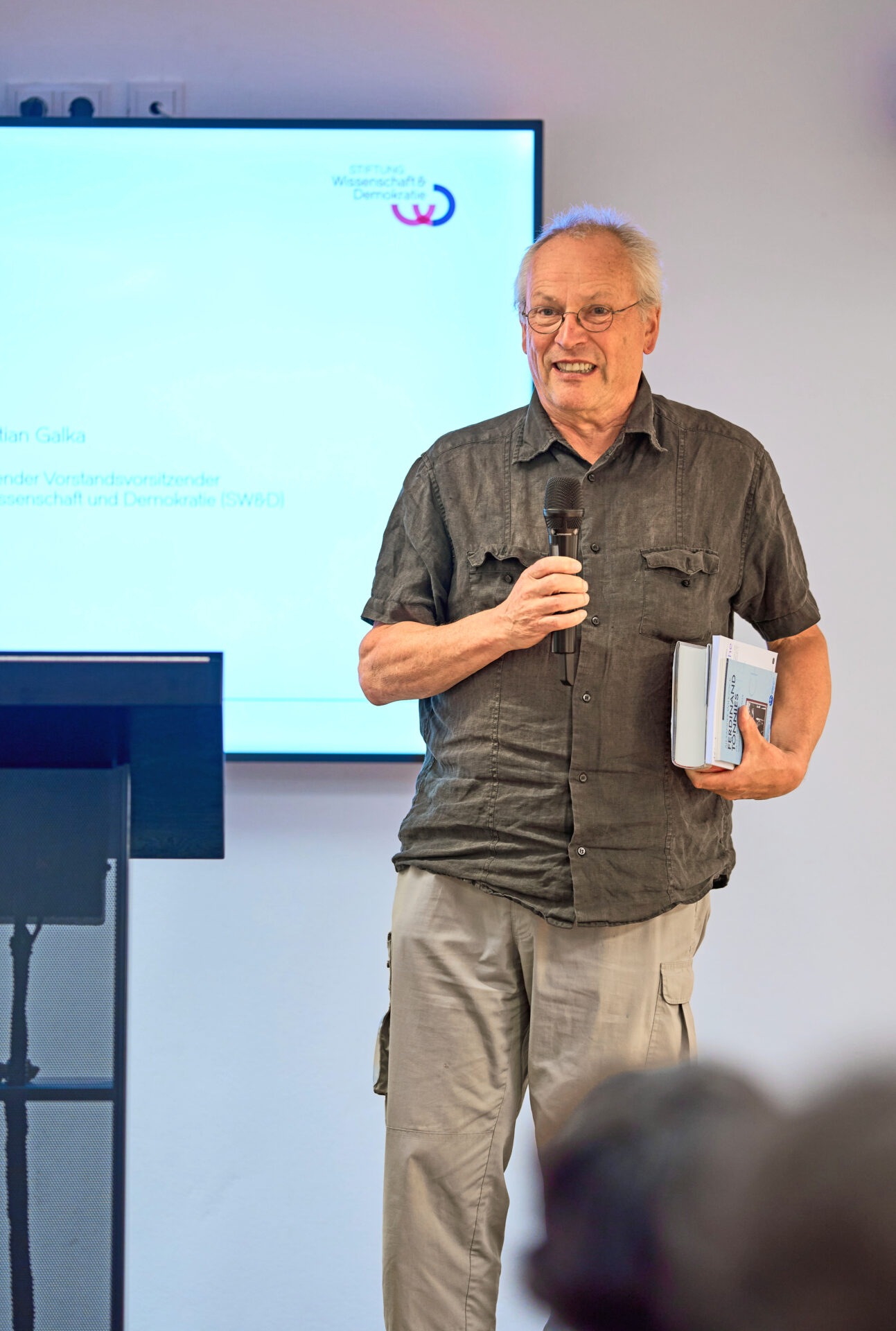
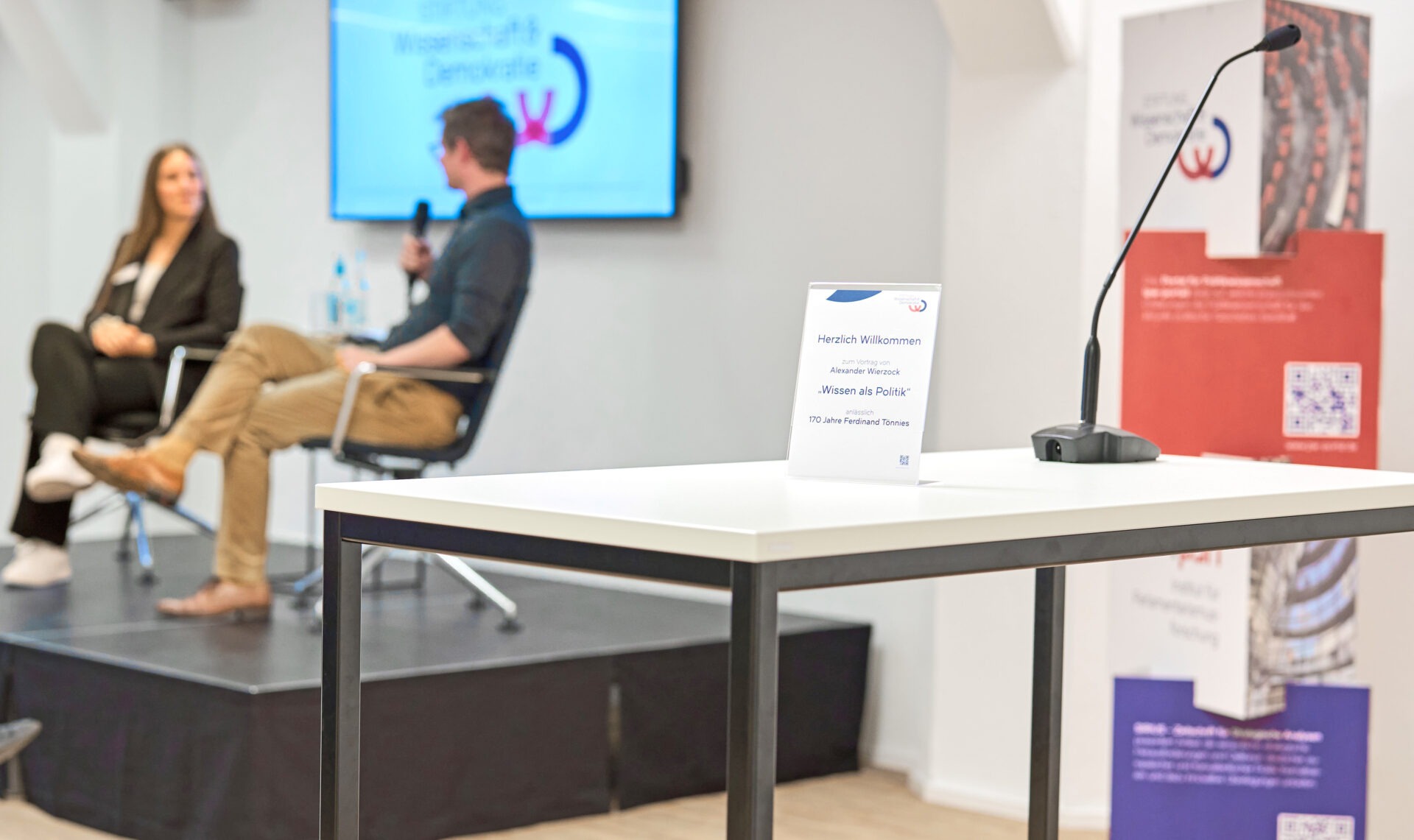
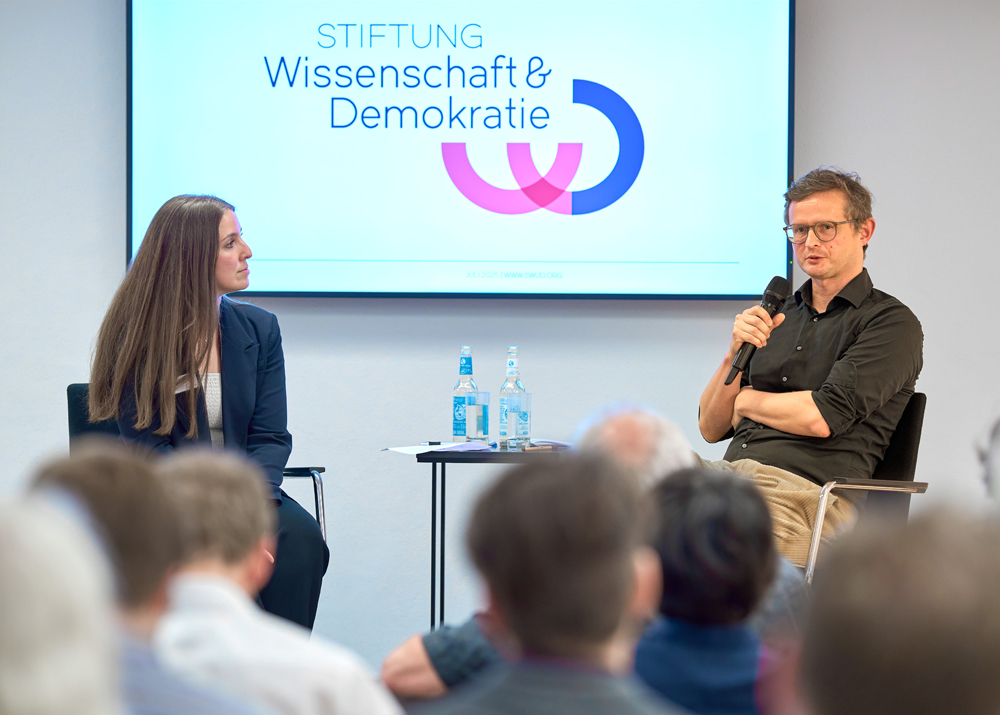

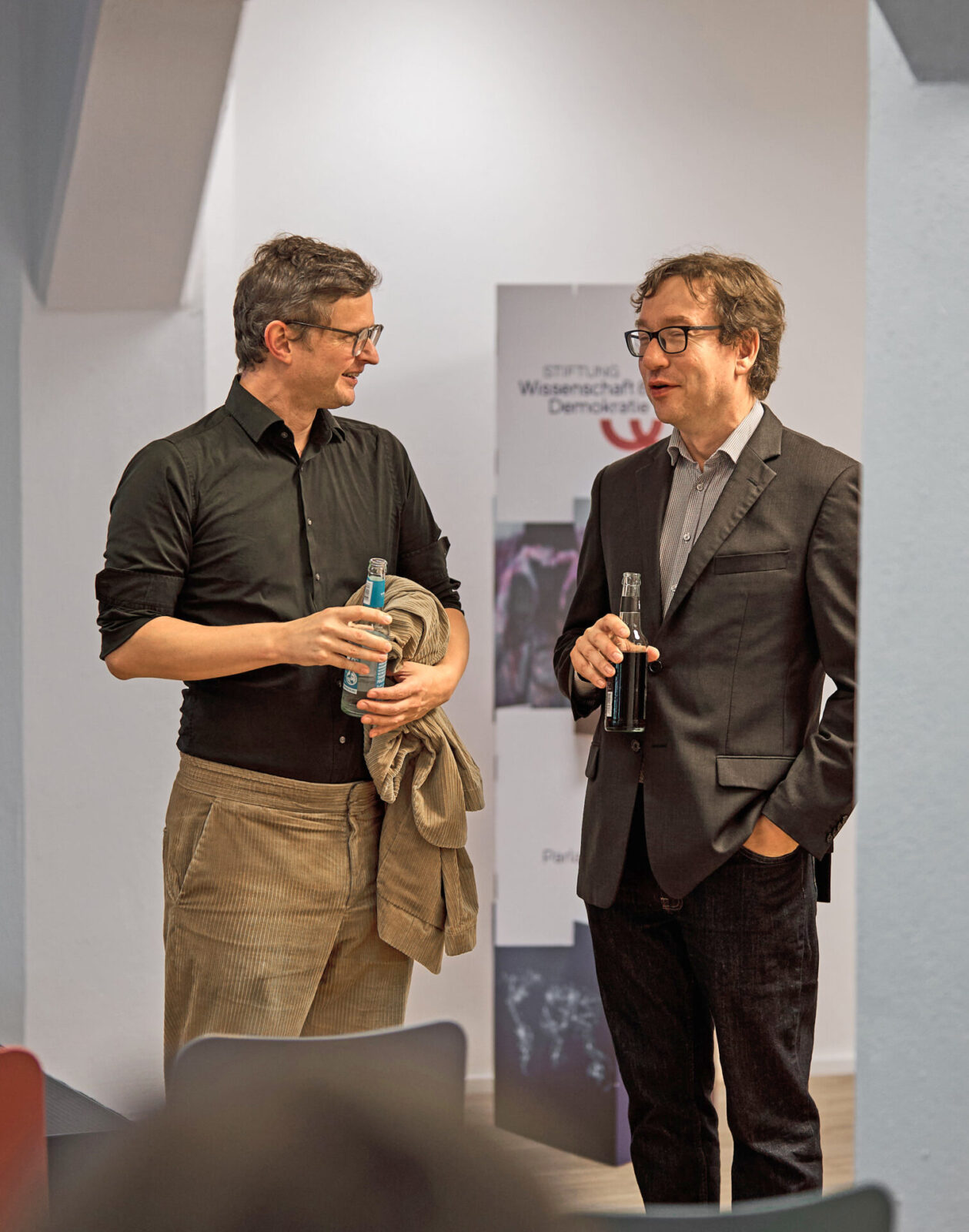
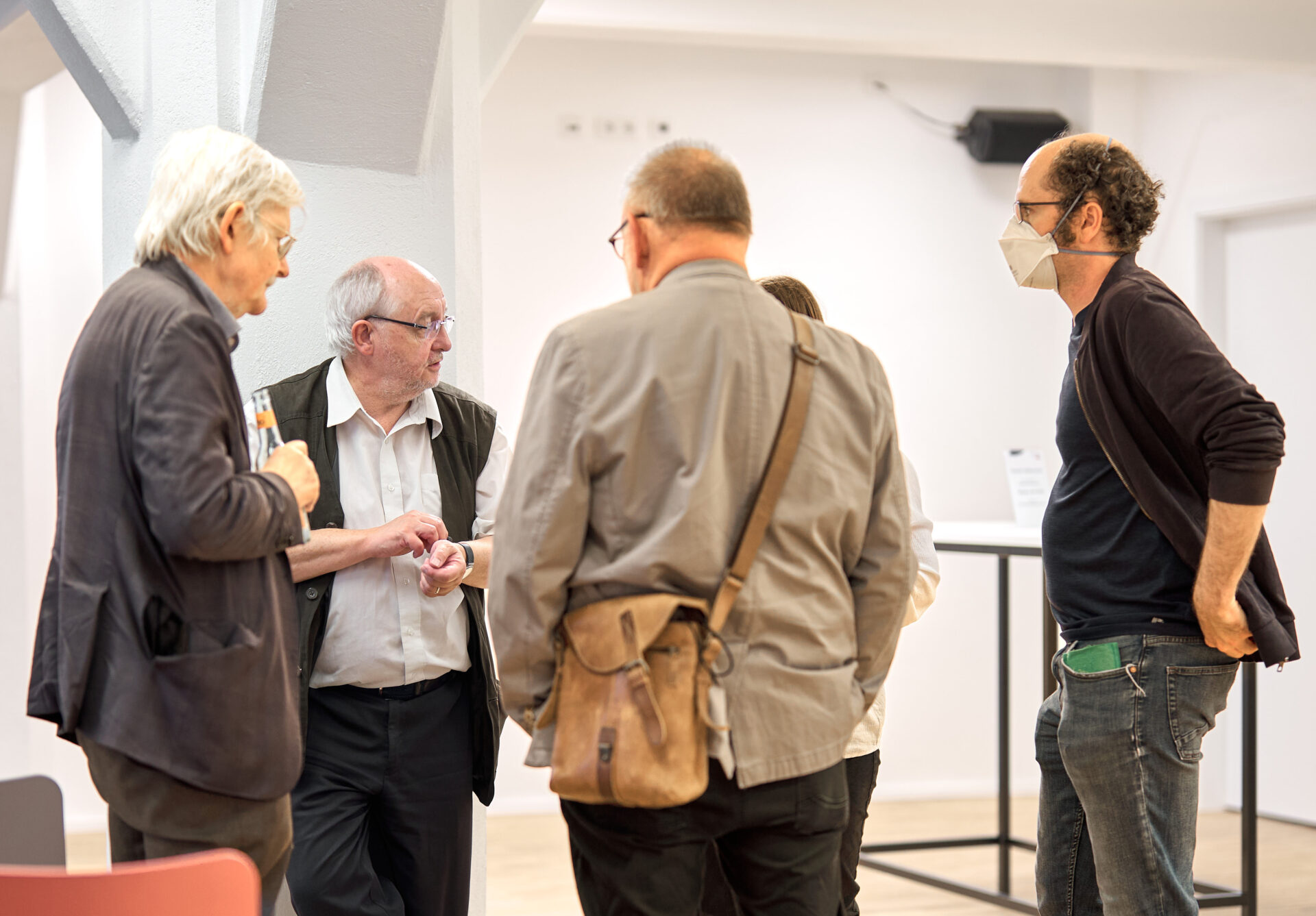
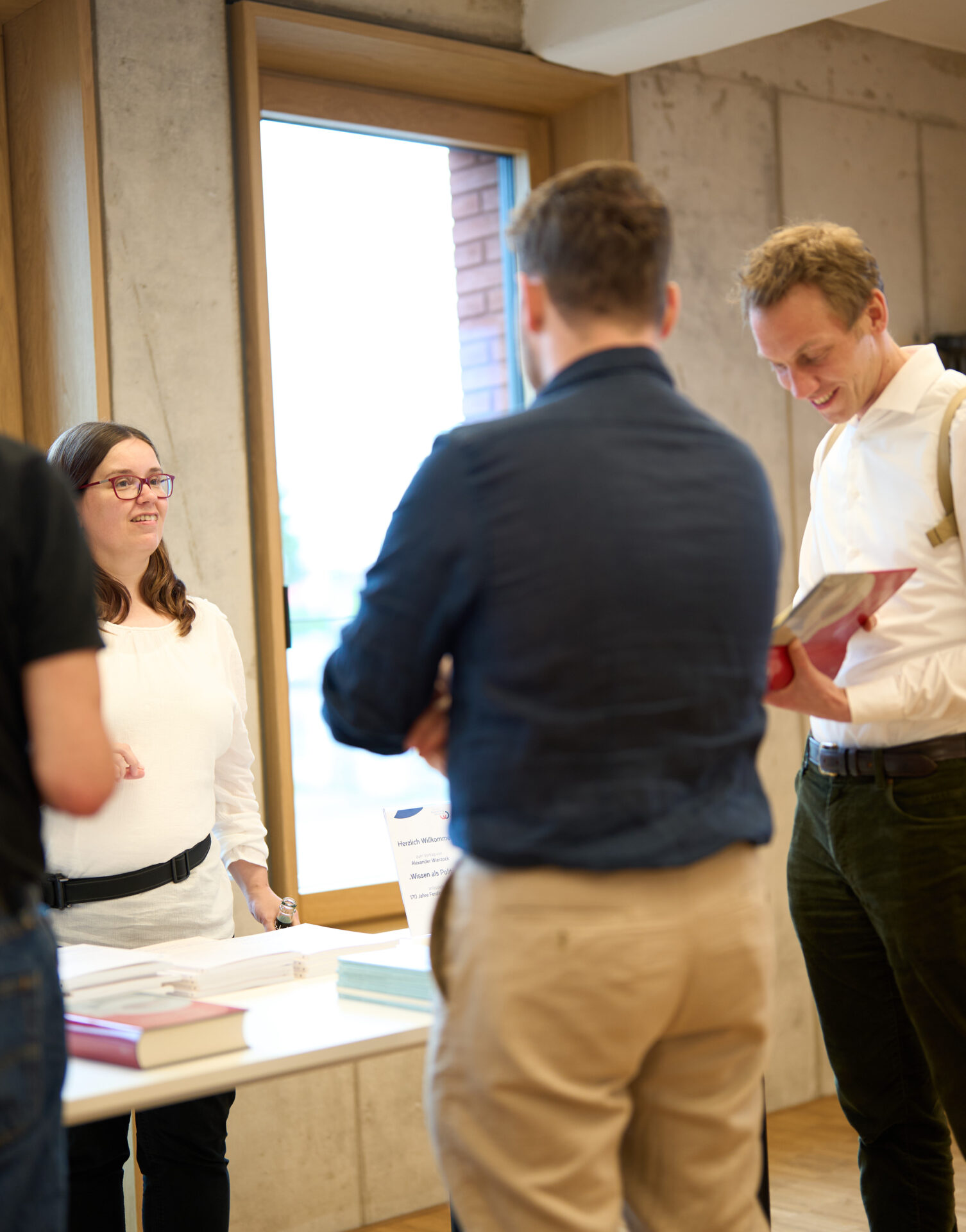

Photos: Eckhard Schmelter / SW&D

